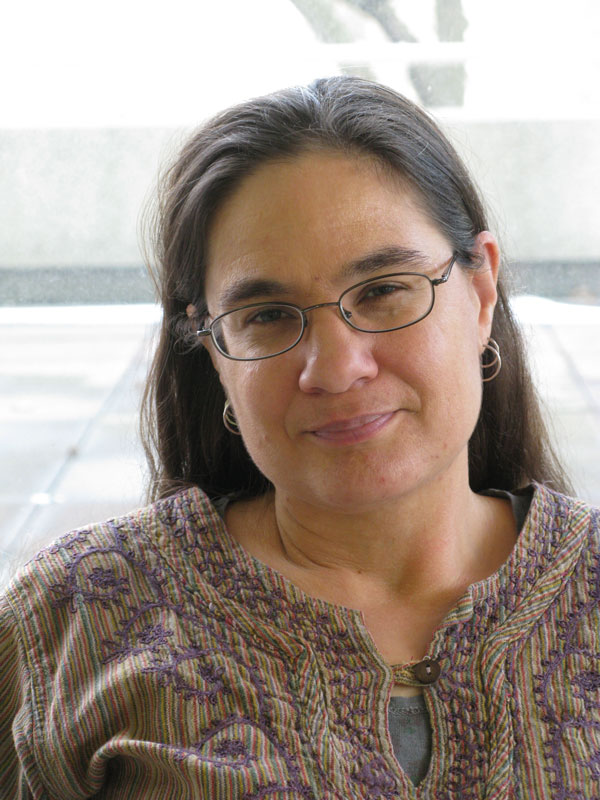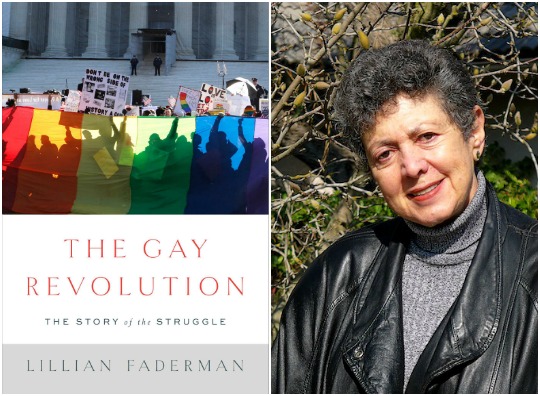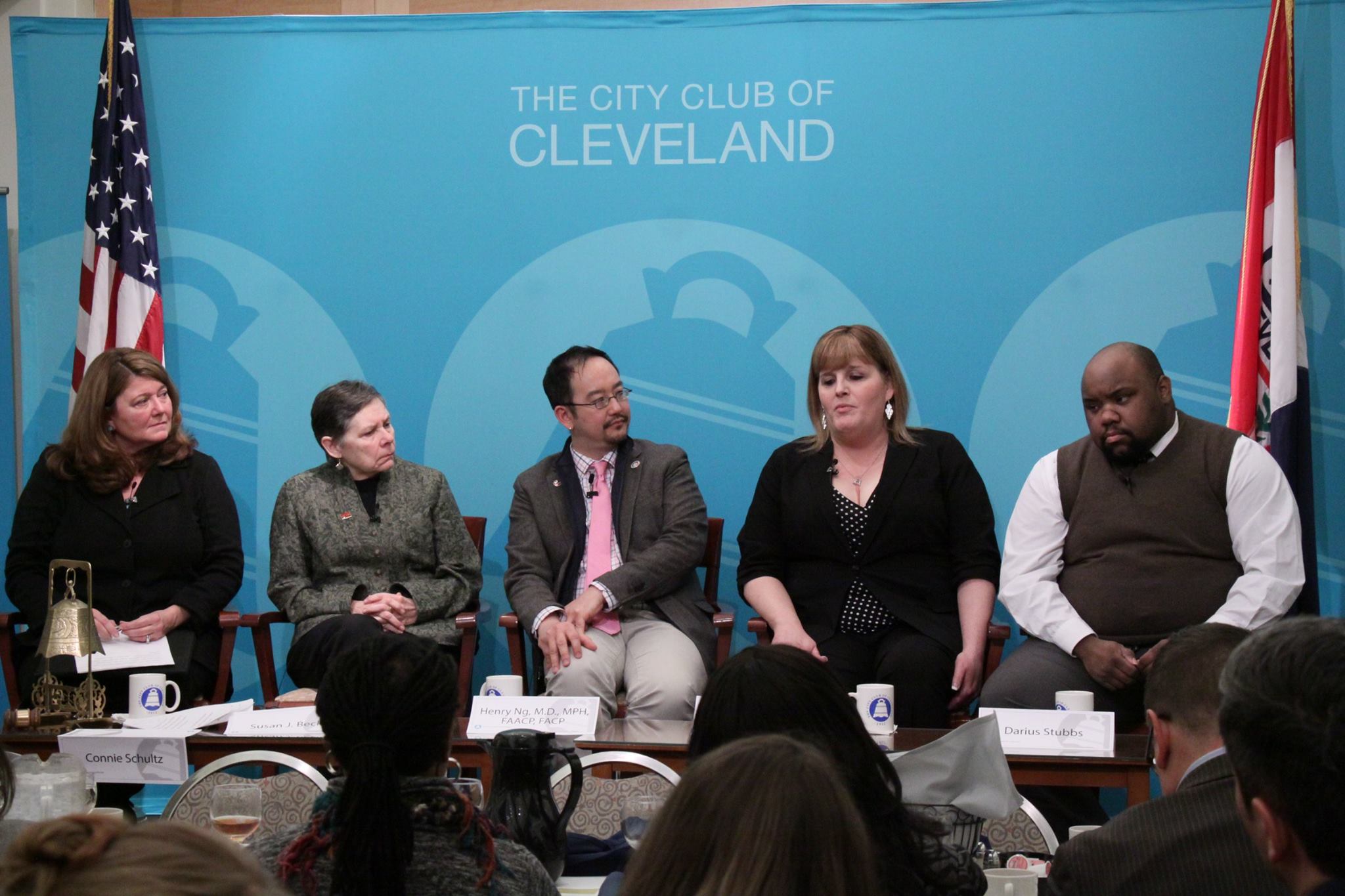The Lavender Graduation is an annual celebration that occurs on numerous campuses across the country, where graduating lesbian, gay, bisexual, transgender, queer and allied students are formally recognized and celebrated for their accomplishments. Last month, Anisfield-Wolf SAGE Fellow Lisa Nielson was honored during Case Western Reserve University’s ceremony with the Prizm Award, which honors faculty and staff members significant contribution to the LGBTQ+ community. Her acceptance speech is reprinted here with permission.
In thinking about what I wanted to say this evening, I naturally gravitated to my identity as a teacher and scholar. To be effective as both, one also needs to be a storyteller. We connect to information and one another through our own experiences and the shared experience of learning. As a result, I see my role as not only teaching content, but to help students read, write and speak critically, and through that process enter the broader world conversation through their own stories. Apparently, my superpower is also to inspire guilt so they write their papers.
The stories I usually tell are funny, peppered with anecdotes about the colorful members of my family. I grew up in the LGBT community and the gay rights movement of the ’80s and ’90s. Whenever I enter a room and say “We’re here, we’re queer, get used to it,” my students chuckle. Yet, when they ask me about my history and experiences, I give them a true but often carefully curated answer. I don’t want them to be discouraged by the dark things. What it meant to be raised by a mentally and physically disabled, queer, single parent.
At the recent “Faces of Immigration” program put on by the Muslim Student Association, I decided to tell a few of the other, less funny stories. After, one of my former students asked why I didn’t do that more often, as hearing my experiences might help students connect to the material I teach, and me. It never occurred to me they would want to know, or if it would even be appropriate to tell them.
My activist parents raised me to believe that gender was relative and everyone is bisexual. I didn’t know other people weren’t bisexual or didn’t believe the same thing until I hit puberty. For example, when I was about 6, I asked my parents if it were possible for men to marry men and women to marry women. We had been living for years in a house with a lesbian couple, Andy and Marietta, so it was a reasonable question. After a series of quick, furtive looks, my parents said, “Of course.” Satisfied that my options were indeed as open as hoped, I accepted that as truth.
When I was 13, my mother came out as a lesbian. She couched it in great ceremony, sitting me down and saying, with much gravity: “Sweetie, I’m gay.” My answer was something sensitive like, “So what else is new?” undoubtedly wrecking the moment. She had been hanging out at a bar called the Pussy Cat Club, seeing a great lesbian therapist, and was functioning again. I was happy she was happy. Yet, I knew that I couldn’t talk about my mother being gay outside the LGBT community. We could lose our home, she could lose her job, and I could be taken away by the authorities. “We’re here, we’re queer, get used to it” was not just a rallying cry; it was revolutionary. It was dangerous.
I wore my Lavender Menace t-shirt, Stop Heterosexism pin, and pink and black triangles all through high school. (This was before the rainbow.) I read Dykes to Watch Out For, Hothead Paizan, Audre Lorde. When my mom thought I might be having sex with, well, somebody, she gave me a copy of Lesbian Sex. It had a lurid pink cover with two bodies intertwined, and she handed it to me with the instruction to “just insert different parts as needed.” I was terrified to even open it and put it as far away from my bed as possible. My friends loved it, however, and probably read it cover to cover.
Our lives centered around women and the lesbian community. They gathered in our house for feminist meditation and Wicca, we went to their farms for bland vegetarian potlucks and midnight skinny dipping. In college, I participated in the first Coming Out Day and proudly marched in the first pride march in Bangor, Maine. Although the women around me were disappointed I seemingly preferred men at the time, they accepted me unconditionally. Sandra and Kath, Kathy, Deo, Melanie, Sandy: these were the women who took me to get my driving license, baked cakes for my birthdays, showed up at my concerts, gave me jobs, and helped when my mother was ill. They were – and are – my family.
As I grapple with this political moment and my bewilderment of how we got here, I have reflected more on the experiences that form me, and when I have been complicit in the system by keeping silent. As activists in the 80s and 90s said “silence=death” and we must again be vocal. The lesson I learned from my family is that my stories not just about me, but the people and community that raised me. They are my home. That we’re here, we’re queer, get used to it.
Thank you.
Lisa Nielson is the Anisfield-Wolf SAGES Fellow at Case Western Reserve University. She has a PhD in historical musicology, with a specialization in Women’s Studies, and teaches seminars on the harem, slavery and courtesans.


